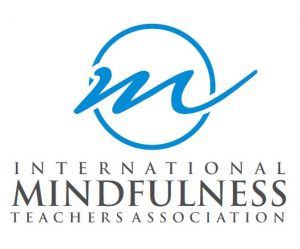The International Mindfulness Teachers Association (IMTA), the first organization dedicated to professionalizing and standardizing the mindfulness field, launched today.
The nonprofit is aiming to establish quality guidelines that were lost when the practice shifted from its traditional religious framework to secular society. To that end, it currently offers memberships to teachers and organizations as well as accreditation of teacher-training programs and certification of individual teachers, designating that they’ve met IMTA-defined standards for the field.
Nowadays, those looking to teach mindfulness outside a Buddhist context—they can range from schoolteachers to faith leaders and social workers to coaches and consultants of various stripes—are left to their own devices in deciding what makes a mindfulness program valid. The same goes for students who engage mindfulness teachers individually and for companies who hire them.
“We’d like to be a reference point for the field and the general public,” said Dawa Tarchin Phillips, Executive Director of the IMTA, who is joined on the organization’s board of directors by Phillip Moffitt and Diana Winston.
When asked what counts as a qualified mindfulness teacher, Phillips cited subject matter expertise; experience and depth of practice; clarity; the qualities of compassion, empathy, and humanity; and the ability to cultivate student confidence in the practice and to be open to feedback.
IMTA certification involves an evaluation of the applying teacher’s background and credentials; participation in an IMTA-accredited program is also required. Qualifying programs will need to meet a variety of requirements, including a 200-hour education minimum, supervision by a teacher with at least 10 years’ personal practice, and a screening process for entry, among others. Though not yet in place, in the future the certification will also require a standardized assessment that will test the applicant’s knowledge of mindfulness theory, history, and science.
There is a $100 annual fee for individual IMTA membership. (For comparison, annual membership for the American Bar Association ranges from $146 to $467; the International Yoga Federation is $160.) Along with membership, there is a one-time application fee of $150 to become certified, as well as a $95 exam fee when the standardized test becomes available. Organizations can also become members of the IMTA for an $800 annual fee. For IMTA organizational members, there is a $500 fee to apply for program accreditation, a $1,500 fee to license the IMTA logo, and a $1,500 annual renewal fee. Non-members can become certified or accredited at an additional cost.

IMTA membership is also open to teachers who have learned mindfulness at Buddhist centers, although acceptance of such members will be considered on a case-by-case basis.
“We’re well aware that this is a new field, and that there are countless wonderful teachers out there who come from various backgrounds of dharma training,” Phillips said. “We’re interested in creating pathways to onboard those teachers without the program requirements.”
Looking into the future, the IMTA would also like to establish professional ethical standards and a procedure for dealing with grievances, as well as a community network of mindfulness teachers and opportunities for continuing mindfulness education.
“It is an intimate relationship when you let someone into your mind,” Phillips said. “For that reason, a student needs to know that the person leading them in this has gone through a qualifying training.”
Thank you for subscribing to Tricycle! As a nonprofit, we depend on readers like you to keep Buddhist teachings and practices widely available.
